Under the guidance of Dr. Thorsten Dörr, Georg Larch, Dirk Niederberghaus and York von Massenbach, the first quarterly exchange 2024 took place on March 13, 2024 bringing together selected managers from the DACH region.
We discussed several key findings for the end of Q1:
- We noticed a significant increase in interim projects, particularly in finance. Boyden clients have sought short-term support in various financial roles such as interim CFO, interim CFO Europe, and interim project manager for tasks like cash flow management and group accounting optimization.
"The increase in positions in the financial sector may be seasonal, whether due to pressing deadlines for annual financial statements or other open issues in this area; we will continue to observe how this trend continues", Georg Larch, Managing Partner - Similarily to Q4/2024, there’s a continued demand for interim managers with expertise in restructuring-related projects. Positions such as interim CTO or interim CRO are emerging as the most sought-after, reflecting the pressure for change in core industries like automotive and mechanical engineering in Germany, as noted by Dirk Niederberghaus, Managing Partner.
- There’s a noticeable increase in interim mandates related to operations management, indicating a growing need to adapt conventional business models for quality and logistics optimization.
- The importance of effective HR management, particularly in the context of digitalization, is highlighted by roles like interim CIO. Projects such as interim HR consulting and interim project manager for labor relations underscore the support provided to local HR departments by interim experts.
- Interim management projects in an international setting remain significant across industries and functional areas.
A hot topic of discussion among managers was the value of certificate courses for interim managers and their clients.

Here are five key points to consider about certificates:
- Experience Trumps Certificates: As a general rule, relevant reference projects and proven "interim muscle" are much more important than certificates
- Entry-Level Managers Benefit: Certificate courses make sense for those managers who are new to interim management and are looking to familiarize themselves with the field.
- No Guarantee for High-Level Projects: Completing an interim restructuring course is NOT a guaranteed ticket to landing high-level projects like interim CRO or CTO.
- Certificates in Emerging Fields: In new project areas like AI or ESG, where there‘s a scarcity of interim managers with proven experience, having a certificate can improve your chances of securing a project.
- Certificates Can Help Fill Gaps: Remember, „Certificates don‘t hurt." They can be useful during downtime,, especially when interim managers are familiarizing themselves with new project trends.
Additionally, Dr. Thorsten Dörr conducted pulse check surveys with the participants to assess the market from a manager's perspective in the first quarter of 2024. Here’s what emerged from their insights:.
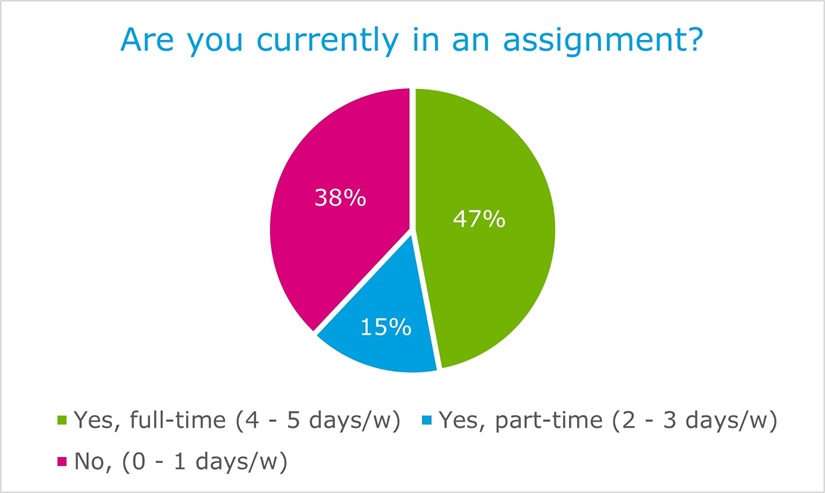
Comparing to the fourth quarter of 2023, it’s evident that capacity utilisation has decreased. During that period, over 70% of interim managers were still predominantly working on projects 4-5 days a week. However, when it comes to the number of project inquiries, the situation is different. There has been significant change compared to the previous quarter; in fact, there’s a tendency for it to increase:
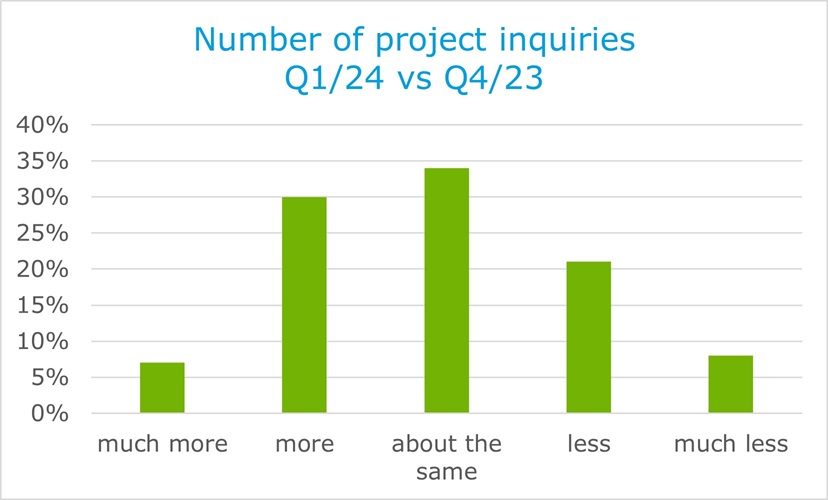
One explanation for this seemingly contradictory development is that clients are more hesitant about mandating interim managers; over 50% of participants report that the speed of project assignment has slowed down compared to the end of 2024.
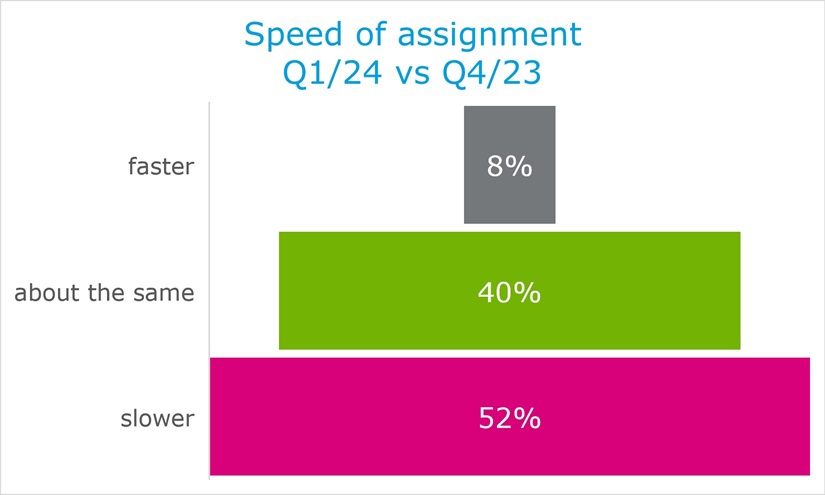
This result confirms Boyden's current experience.
However, there has not yet been any impact on daily rates; these are currently at the same level as in Q4 of the previous year.
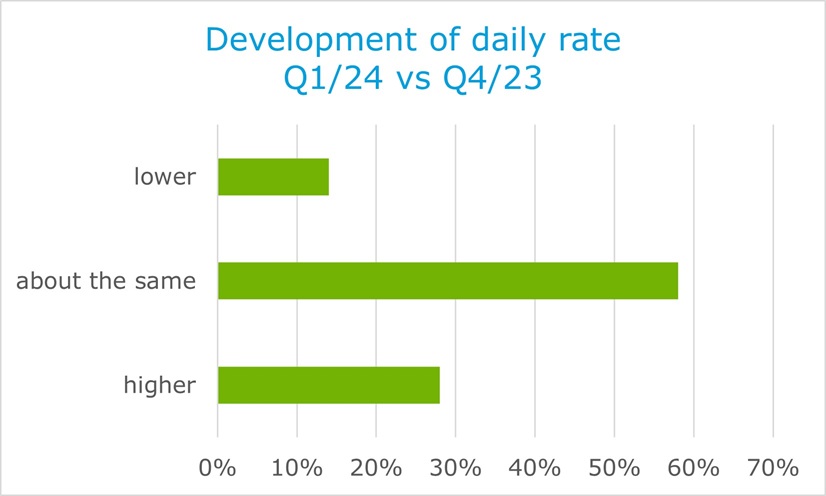
We recently investigated whether there’s a trend of "returning to the office" in interim management for the first time. The result is comparable to permanent employees: over 40% work remotely for a maximum of one day per week, and less than 15% are in the office a maximum of 4 - 5 days a week. The largest number, over 45%, work on-site 2 - 3 days a week.
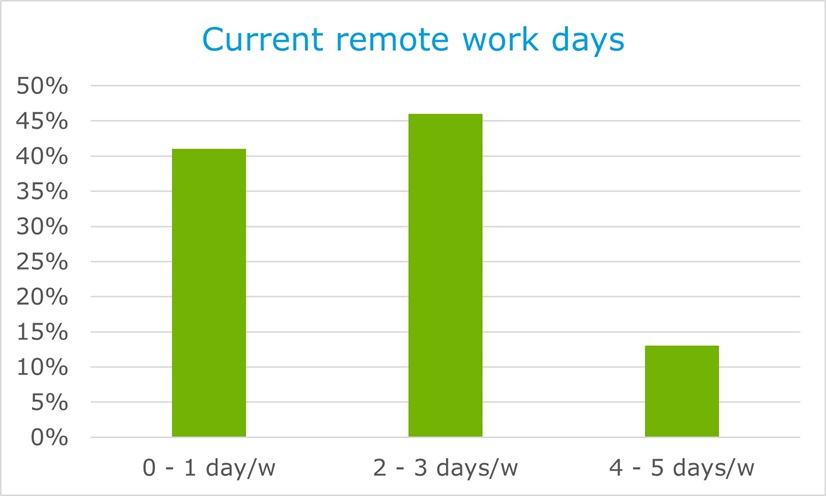
We also wanted to know which topics the participants' clients are currently particularly concerned with and the results confirm the forecast from the previous quarter: cost reduction/restructuring (29%) and IT/digitalization (20%) are the top topics in companies.
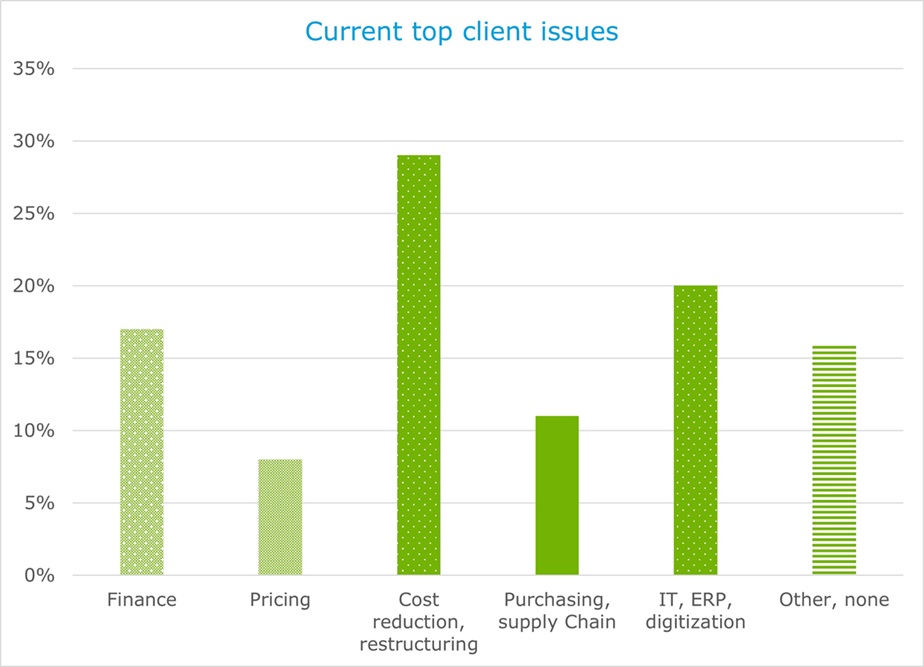
The discussion concluded with the participants' sharing their current assessment of the overall sentiment in Germany:
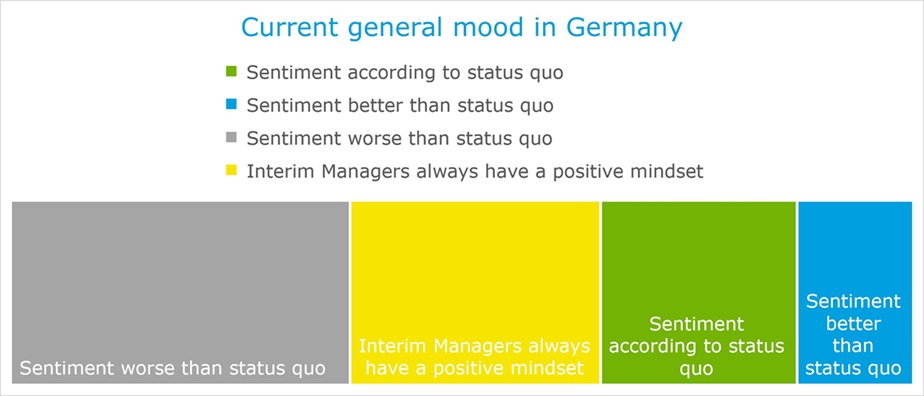
As Ludwig Erhard once said, "Business is 50% psychology.“ Despite cost-cutting and restructuring being top concerns for companies right now, the current situation appears more favorable than the overall national mood as highlighted by Dr. Thorsten Dörr, Managing Partner.
It seems the general mood in Germany is perceived to be worse than the current state of affairs. However, could the optimistic outlook of the interim managers help change this? Keeping a positive mindset could be a key factor in shifting the atmosphere!
Are you an interim manager and would like to take part in the next Boyden Quarterly Call? Just send us an e-mail and we will add you to our mailing list!








